Simulation
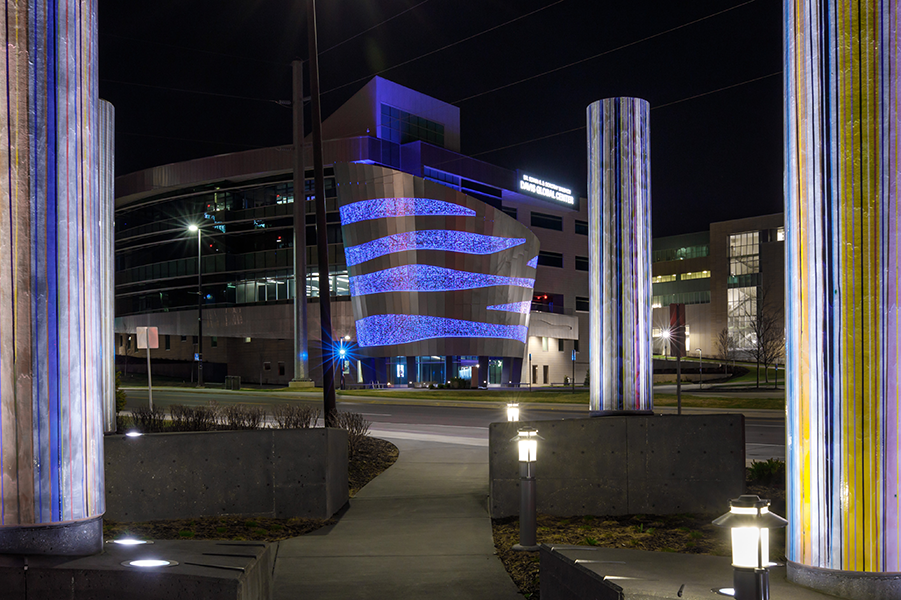
Davis Global Center - clinical simulation center
3D-Printed Gynecological Task Trainer
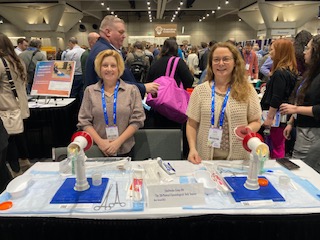
Jami Monico and Dr. Karen Carlson displayed the gynecological task trainer that they designed at the IMSH 2024 Simventors showcase.
In 2023, the collaborative efforts of instructional designer Jami Monico and associate professor Dr. Karen Carlson resulted in the development of an innovative 3D-printed gynecological task trainer. This advanced simulator serves as a dynamic educational tool for learners, enabling hands-on practice of essential procedures such as Pap smear collection, endometrial biopsy, and manual vacuum aspiration.
Undergoing a quality improvement study with institutional review board approval, the task trainer was subjected to evaluation through an online survey, providing valuable insights into its effectiveness for learners. The comprehensive report explaining the study and task trainer construction directions including the 3D-print files are openly accessible for those interested in replicating the task trainer.
Beyond our department, this task trainer has been integrated into nursing and family medicine education, fostering interdisciplinary skill development. Classroom simulations involve setting up multiple task trainers, allowing students to engage in deliberate and repetitive practice of gynecological procedures within a controlled environment. This initiative represents a significant advancement in practical medical education, providing a tangible and impactful learning experience for students across disciplines.
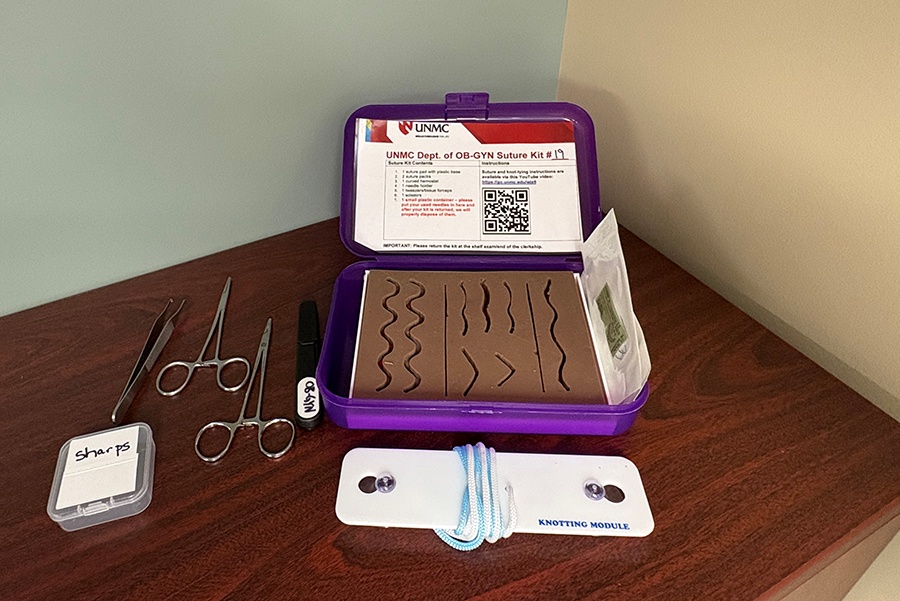
We created suture pads and suturing and knot-tying kits for the medical students to use while they are completing the clerkship.
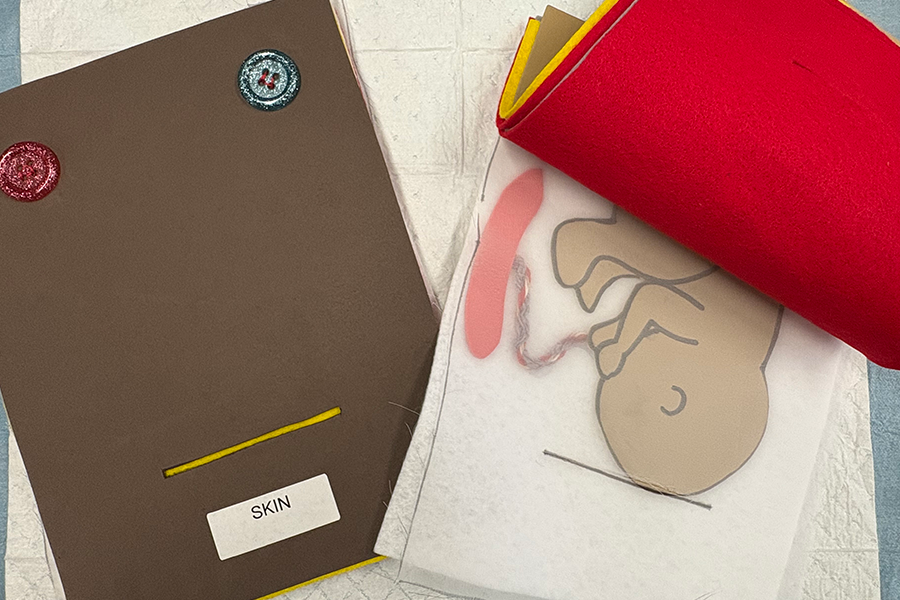
For the students to understand the layers of the abdomen that are entered during a c-section, we created these booklets.
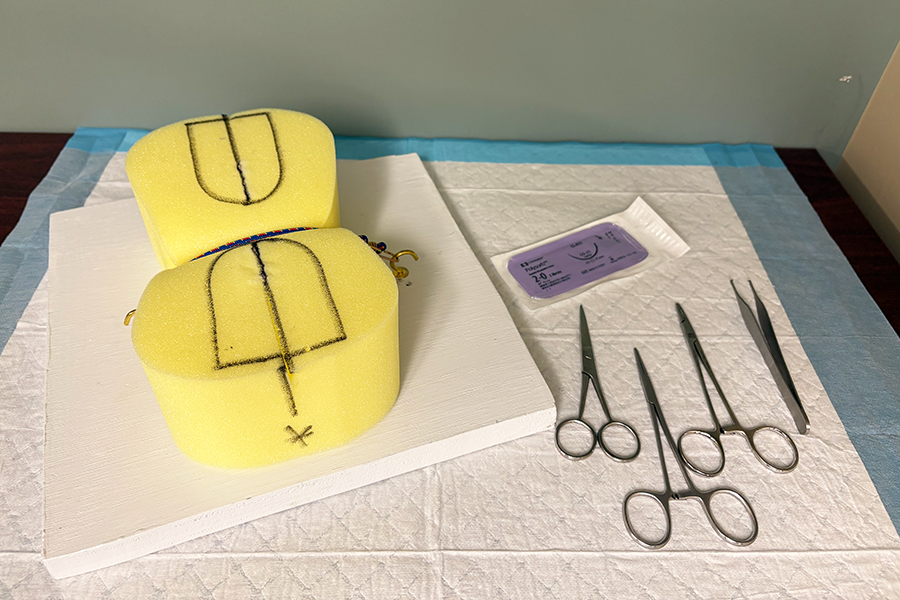
Advanced suturing skills are learned with the perineal laceration task trainer.
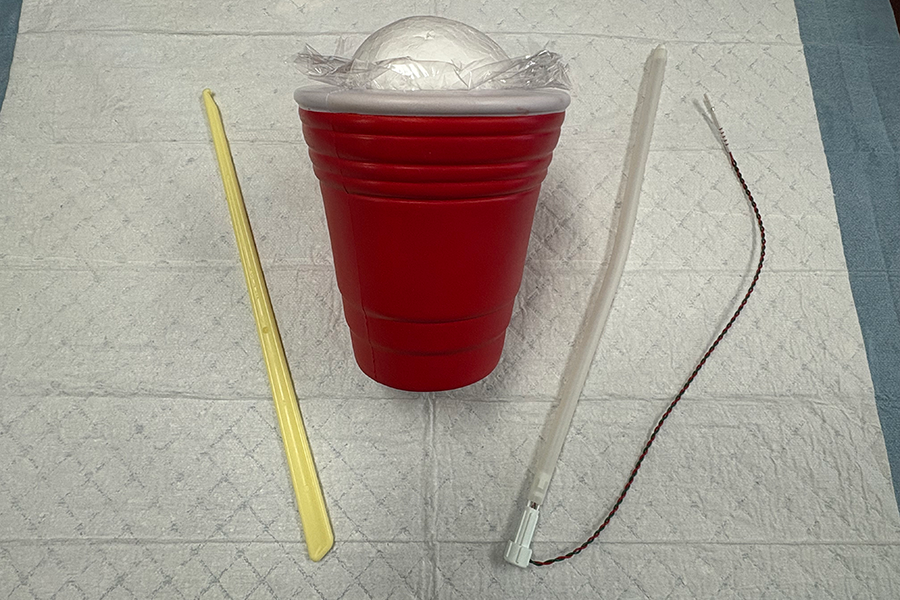
This versatile task trainer allows for the students to simulate breaking the bag of amniotic fluid and inserting a fetal scalp electrode.